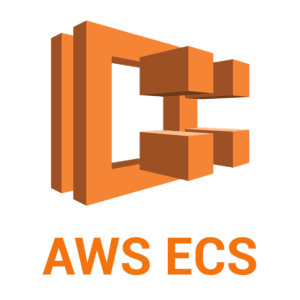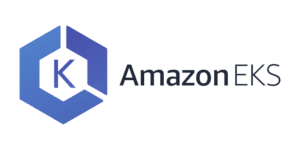
AWS DevOps:
Our team of Devops engineers have the expertise to provide everything Devops with the AWS platform. We also accommodate clients’ demand to use any particular platform within the AWS infrastructure.
Advantages of choosing a
AWS Devops consultancy:
Choosing AWS Devops comes with its own set of perks. When combined with a well experienced AWS consultant you can launch your project swiftly with no hiccups.
Cloudian Arc’s Devops help businesses in forming an integrated solution that yields effective results.
Quick launch to project:
AWS is ready to use without any setup or downloads. Over developers can directly deploy the code solutions to your projects over the cloud and get it hosted anywhere you want. Your database, hosted on your own servers or other cloud platforms.
Fully managed services:
Our Devops team takes advantage of the robust AWS resources to yield quicker solutions. You can worry less about setting up, installing, and operating infrastructure on your own. This lets you focus on your core product.
Large partner ecosystem:
Our AWS Devops Developers truly understand the large ecosystem of partners which integrate with and extend AWS services. Hence using your preferred third-party and open source tools with AWS to build an end-to-end solution is as easy as it gets.
Why choose Cloudian Arc?

Devops in general can be an extremely intimidating and challenging endeavour. AWS with its endless list of services which scope beyond Devops can be an intimidating and confusing platform for many. With an experienced AWS Devops consultancy like Cloudian Arc, you can outsource the tough heavy lifting and rather confusing Devops to us and focus on key aspects of your business like growth of your company.
Cloudian Arc DevOps team have deep in depth knowledge of the entire AWS platform and have the expertise and experience that comes with years of extensive practice to know which service to use where and how to best employ each service for optimal results.
We have in-depth knowledge of how each service works within the AWS Devops Architecture and where to use them to bring you the most optimal results from your projects.
Some of the AWS ecosystem we expertise in are:
- ECS
- EKS
- ECR
ECS:
Amazon Elastic Container Service (Amazon ECS) is a highly scalable and fast container management service. Oue developers use it to run, stop, and manage containers on a cluster. We use it to run an individual task or task within a service. Combined with a service like AWS Fargate you can run tasks and services on a serverless infrastructure.



We use Amazon ECS for the following features:
- 1. A serverless option when combined with AWS Fargate.
2. Integration with AWS Identity and Access Management (IAM).
3. AWS managed container orchestration.
4. Continuous integration and continuous deployment (CI/CD).
5. Support for service discovery.
6. Support for sending your container instance log information to CloudWatch Logs.
The AWS container services team maintains a public roadmap on GitHub.
EKS:
Kubernetes is an open-source container orchestration system for automating software deployment, scaling, and management. It is an excellent stand alone service for containerized applications.
With Amazon Elastic Kubernetes Service (Amazon EKS) you can run Kubernetes on AWS without needing to install, operate, and maintain your own Kubernetes control plane or nodes.



Is integrated with many AWS services to provide scalability and security for your applications, including the following capabilities:
- 1. Amazon ECR for container images
2. Elastic Load Balancing for load distribution
3. IAM for authentication
4. Amazon VPC for isolation
Getting started with Kubernetes with Amazon EKS is child’s play for our developers.
ECR:
Amazon Elastic Container Registry (Amazon ECR) is an AWS managed container image registry service that is secure, scalable, and reliable.



AWS ECR has many useful components but we mainly use it to attain the following needs:
- 1.Registry: create one or more repositories in your registry and store images in them.
2. Authorization token: to authenticate Amazon ECR registries as an AWS user before it can push and pull images.
3. Repository: An Amazon ECR repository contains your Docker images, Open Container Initiative (OCI) images, and OCI compatible artifacts.
4. Repository policy: to control access to your repositories and the images within them with repository policies.
5. Image: You can push and pull container images to your repositories.
Some of the AWS ecosystem we expertise in are:
- ECS
- EKS
- ECR
Amazon Elastic Container Service (Amazon ECS) is a highly scalable and fast container management service. Oue developers use it to run, stop, and manage containers on a cluster. We use it to run an individual task or task within a service. Combined with a service like AWS Fargate you can run tasks and services on a serverless infrastructure.



- 1. A serverless option when combined with AWS Fargate.
2. Integration with AWS Identity and Access Management (IAM).
3. AWS managed container orchestration.
4. Continuous integration and continuous deployment (CI/CD).
5. Support for service discovery.
6. Support for sending your container instance log information to CloudWatch Logs.
The AWS container services team maintains a public roadmap on GitHub.
Kubernetes is an open-source container orchestration system for automating software deployment, scaling, and management. It is an excellent stand alone service for containerized applications. With Amazon Elastic Kubernetes Service (Amazon EKS) you can run Kubernetes on AWS without needing to install, operate, and maintain your own Kubernetes control plane or nodes.



- 1. Amazon ECR for container images
2. Elastic Load Balancing for load distribution
3. IAM for authentication
4. Amazon VPC for isolation
Getting started with Kubernetes with Amazon EKS is child’s play for our developers.
Amazon Elastic Container Registry (Amazon ECR) is an AWS managed container image registry service that is secure, scalable, and reliable.



- 1.Registry: create one or more repositories in your registry and store images in them.
2. Authorization token:
to authenticate Amazon ECR registries as an AWS user before it can push and pull images.
3. Repository:
An Amazon ECR repository contains your Docker images, Open Container Initiative (OCI) images, and OCI compatible artifacts.
4. Repository policy: to control access to your repositories and the images within them with repository policies.
5. Image: You can push and pull container images to your repositories.
Amazon CloudWatch:
Amazon CloudWatch is a monitoring and observability service built for DevOps engineers. CloudWatch is an Amazon Web Services resource used to monitor the applications run on AWS in real time. We use CloudWatch to collect and track metrics which are variables you can measure for your resources and applications. CloudWatch provides us with data and actionable insights to monitor your applications, respond to system-wide performance changes, and optimize resource utilization to better implement your projects.
Amazon Cloudfront:
CloudFront is a CD (Content Delivery Network) that delivers content with low latency and high transfer speeds.
Our Devops team uses CloudFront for:


AWS IAM
AWS Identity and Access Management (IAM) provides fine-grained access control across all of AWS. It is an integral part for us to make sure to give selective accessibility so as to make sure we provide the correct security for your project. With IAM, we can specify who can access which services and resources, and under which conditions. With IAM policies, we manage permissions to your workforce and systems to ensure least-privilege permissions.


AWS SSM
AWS Systems Manager Agent (SSM Agent) is Amazon software that runs on amazon elastic compute cloud instances, edge devices and other various servers and virtual machines. The SSM agent makes it possible for a system manager to update, manage and configure resources.


Amazon S3
Amazon Simple Storage Service or better known as S3 is an object storage service. It offers our developers abilities like scalability, data availability, security, and performance with industry-leading standard and quality. Our developer can use the S3 to store and retrieve any amount of data at any time, from anywhere.


Legacy EC2
SImply put Legacy ec2 is a simple ansible script to gather ec2-metadata. In other words it offers our developers Previous Generation Instances for users who have optimized their applications around these instances and have yet to upgrade. Previous Generation Instances are still fully supported and retain the same features and functionality.
AWS Lambda
Serverless computing is the future. Lambda lets us run code without thinking about servers or clusters. Our developers can trigger Lambda from over 200 AWS services and software as a service (SaaS) applications.
Why we use AWS Lambda:
AWS Lambda is one of the more powerful tools in the AWS Devops architecture, and we certainly make full use of it to deliver optimal results to your projects for a totally serverless workflows.
AWS Auto Scaling
AWS Auto Scaling is a highly intelligent and powerful tool that monitors and adjusts capacity to maintain steady and predictable performance automatically. It enables our developers to easily setup application scaling for multiple resources across multiple services in minutes thus providing swift implementation of your projects.
Our developers use Auto Scaling to employ the following benefits:
Continuous Integration and Continuous Delivery (CI/CD)
- AWS CodeCommit
- AWS CodeBuild
- AWS CodeDeploy
- AWS CI/CD
- AWS CodePipeline
- Jenkins
- Gitlab
- GitHub
Jenkins is an automation server written in Java. The open-source system is currently one of the leading automation servers. We use Jenkins to build, test and continually deploy software. Jenkins provides support for various version control tools but mainly GIT which we at Cloudian Arc use to deploy your projects.
Providing us the ability to develop, secure, and operate software in a single application Gitlab is an essential tool to deliver your projects effectively. Gitlab being the open source software that it is, offers our Devops developers functionality to collaboratively plan, build, secure, and deploy software as a complete DevOps Platform.
Distributed version control and Source Code Management (SCM) functionality are the main features of GitHub, along with its own features. It provides our developers access control and several collaboration features such as bug tracking, feature requests, task management, continuous integration, and wikis for every project. GitHub seems to be the tool we need mastery over which our developers definitely have.
- AWS CodeCommit
- AWS CodeBuild
- AWS CodeDeploy
- AWS CI/CD
- AWS CodePipeline
- Jenkins
- Gitlab
- GitHub
Jenkins is an automation server written in Java. The open-source system is currently one of the leading automation servers. We use Jenkins to build, test and continually deploy software. Jenkins provides support for various version control tools but mainly GIT which we at Cloudian Arc use to deploy your projects.
Providing us the ability to develop, secure, and operate software in a single application Gitlab is an essential tool to deliver your projects effectively. Gitlab being the open source software that it is, offers our Devops developers functionality to collaboratively plan, build, secure, and deploy software as a complete DevOps Platform.
Distributed version control and Source Code Management (SCM) functionality are the main features of GitHub, along with its own features. It provides our developers access control and several collaboration features such as bug tracking, feature requests, task management, continuous integration, and wikis for every project. GitHub seems to be the tool we need mastery over which our developers definitely have.
Infrastructure as Code (IaC)



IaC with Terraform is one of the most widely used standards when it comes to AWS Devops. Our developers are very well versed with Terraform which is an industry leading open-source infrastructure as code software.
Why we use Terraform IaC?:
1. Terraform can manage infrastructure on multiple cloud platforms.
2. The human-readable configuration language helps you write infrastructure code quickly.
3. Terraform’s state allows you to track resource changes throughout your deployments.
4. You can commit your configurations to version control to safely collaborate on infrastructure.
Depending on the requirements of the clients our developers use the AWS features and other tools integratively or use each service separately. Our developers have the expertise to know how to use each service effectively for your project.
